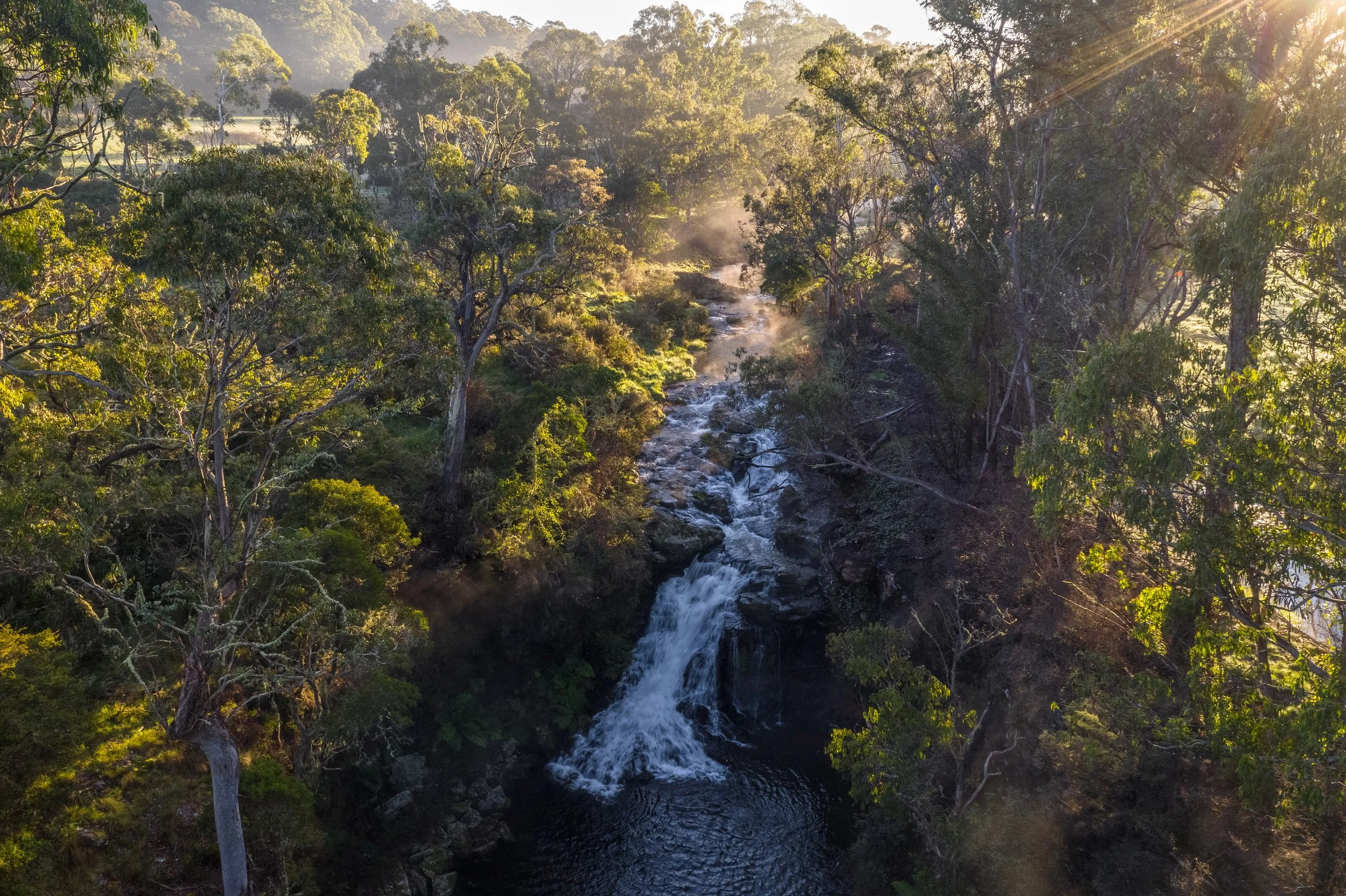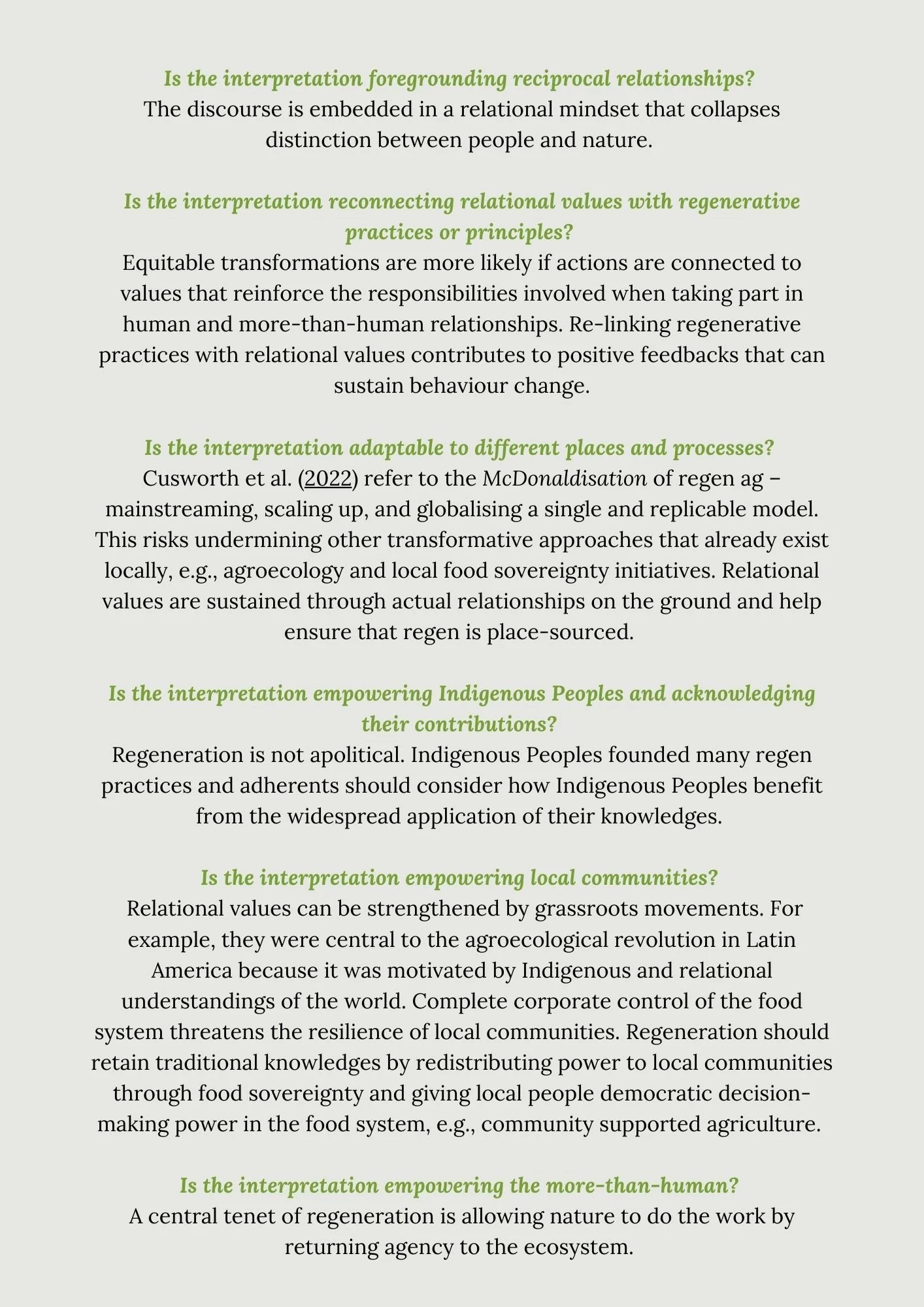
Relational values in regenerative agriculture
What are relational values?
Relational values are values that emerge from meaningful and often reciprocal relationships between people and nature - whether that is a particular place, species, ancestor, or other more-than-human entity. They can be spiritual and cultural, and also include values that emerge from relationships between people that happen through nature. For example, farmers learning about regeneration together.
These values side-step the dichotomy between intrinsic values, where nature has inherent value regardless of people, and instrumental values, where nature has value because of its benefits to people. Most government policies are based on instrumental values whilst environmental advocates often draw on intrinsic values. But in the West, relational values have mostly been considered too intangible and not a serious path to sustainability. This is despite evidence to the contrary, with over 476 million Indigenous Peoples across at least 90 countries upholding these values to live sustainably alongside the more-than-human world.
In our recent paper, we identified many relational values amongst regenerative farmers and ranchers. To varying degrees, these impact their sense of identity, sense of what it means to live a good and meaningful life, sense of place, care for the more-than-human, connections with other people, and sense of social responsibility when it comes to equity and power in agriculture. If taken seriously, these values can help ensure the regenerative agriculture movement contributes to transformative change.
A values distinction in regenerative agriculture
Regenerative agriculture has typically been understood through process-based definitions (concerned with practices and/or principles like “integrating livestock”), outcomes-based definitions (concerned with results life “carbon sequestration”), or some combination of both.
In the Newton et al. (2020) article that first proposed this distinction, the authors also suggested regenerative farmers might favour certain processes due to a “values relationship with the natural world” rather than a belief that they’ll lead to certain results. Our research affirms this hunch.
There is a values distinction in the regenerative agriculture movement between those that prioritise instrumental values, and those that prioritise relational values. We refer to this as the productivist-relational distinction. It's not neat, everyone draws on both instrumental and relational values. But the distinction is made by which values are given higher importance and priority.
This productivist-relational distinction is more critical to regenerative agriculture’s transformative potential than the process-outcomes distinction proposed by Newton et al. (2020). It can help regen advocates defend against co-optation and greenwashing by highlighting the importance of a relational mindset in regenerative agriculture and subsequent shift in values emphasis.
Checking questions
Since the inclusion of relational values is so important to the transformative potential of regenerative agriculture, we developed a list of checking questions. These checking questions are for regen advocates to assess whether key actors are engaged in relational regenerative agriculture, or not.
Actors may include corporations, non-profits, community groups, farmers, governments, or academics. If we cannot articulate a regenerative agriculture that is relational and defend it, then the productivist status-quo will likely dominate and water down the possibilities for transformative change.
These questions are intended as a useful tool for considering how regen is being conceptualised and discussed, and therefore identifying where co-optation or greenwashing is occurring more easily.
It’s also useful as a reflexive tool for those who are getting involved with regenerative agriculture. Often regen ag projects can exclude relational dimensions not because people or organisations are intentionally wanting to, but because they simply do not know. So, hopefully these questions will help people stay true to relational values in the design of the regen projects.
If you’re interested in a deeper dive into this research, please read the paper at the button below :)



